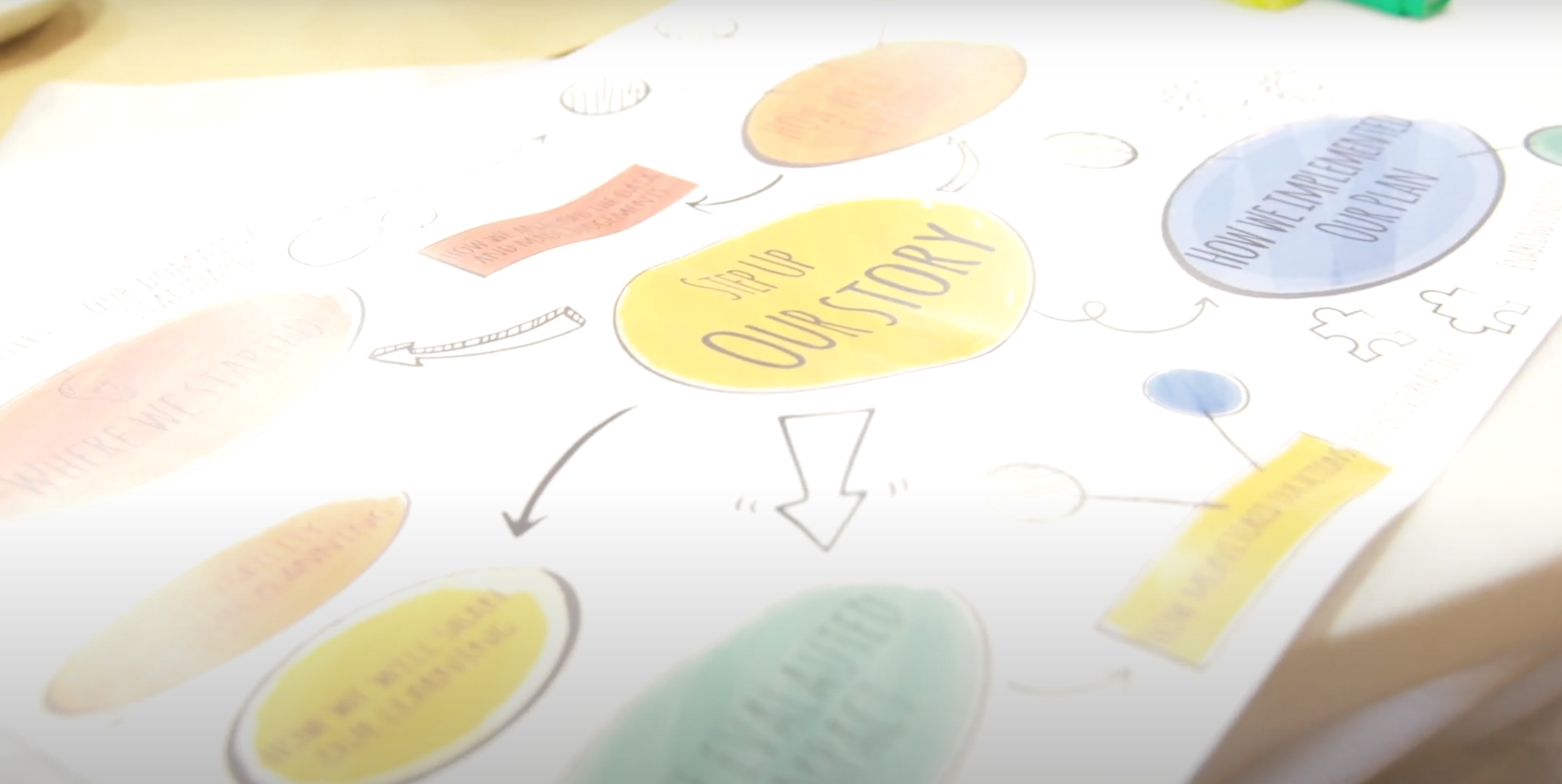
Stories from Schools
Nine schools took part in the Step Up Project. It is important to pay tribute to the commitment shown by the school project teams to completing their Step Up activities and write ups to the best of their ability, in spite of the interruptions and added workload created by Covid 19 in schools. The case studies produced by the nine schools offer rich, school-specific testimony of how they improved practice in their selected area of teaching and learning, using the SSE process. Each Step Up case study is a descriptive, analytical account of what happened in one school, working within its own unique context and circumstances. The reports are not prescriptive of what should happen in all schools.
Below you will find the overall project report and the report of each school.
Click on the image to download the report.
Step Up Project - Composite Report
The purpose of this report is to explain Step Up’s aims and processes and to identify its impacts across the nine schools, leaving the case studies to speak for the specific impacts achieved in the individual schools. Written by a member of the Step Up team of inspectors, this report reflects on the Step Up process, activities and future relevance to the Irish education system. It offers insights to a range of readers.
School Reports
Borrisokane Community College, Tipperary
Demystifying the language of assessment to help students engage more meaningfully in their learning by embedding four key formative assessment practices among teachers and students: learning intentions, co-creating success criteria, effective formative feedback, and reflective practices.
Castletroy College, Limerick
Bringing together teachers of subjects where sustainability is linked to learning outcomes in their Junior Cycle specifications, to develop an interdisciplinary learning experience for students, designed using active, challenging, formative assessment methodologies.
Castleknock Community College, Dublin 15
Supporting the development of students’ listening, critical thinking, and speaking skills through explicit skill instruction and creating more opportunities for students to engage in purposeful, collaborative speaking and listening activities in class.
Coláiste Muire, Ennis
Further developing teachers’ reflective capacities and pedagogical strategies for enabling students to take a more reflective, action-orientated role in their learning, leading to more engaging learning experiences and higher outcomes for students.
St. Bricin's College, Belturbet
Year 1: Improving students’ ability to ask, create and formulate questions
Year 2: Establishing consistent practice among teachers in relation to using success criteria to show students what teachers were looking for in the assessment of work, to guide teachers to ensure coherence between their success criteria and the feedback they were providing, and to achieve richer feedback for students on summative pieces of work.
St. Columba's College, Stranorlar
Developing a broader range of everyday, interactive classroom feedback approaches from students to teachers, to give students more opportunities to be actively involved in their learning, to voice their opinions, and to take more responsibility for their learning.
St. Colmcille's Community School, Dublin 16
Creating more challenging learning experiences by further developing the practice of effective questioning in the school.
St. Louis Secondary School, Dundalk
Strengthening student and teacher use of digital technology, as an element common to all eight junior cycle key skills.
Stratford College, Dublin 6
Teachers working across disciplines to develop a broader range of inquiry-based and collaborative methodologies and to agree similar practices around the teaching of key skills, to support students engaging with classroom-based assessments.










